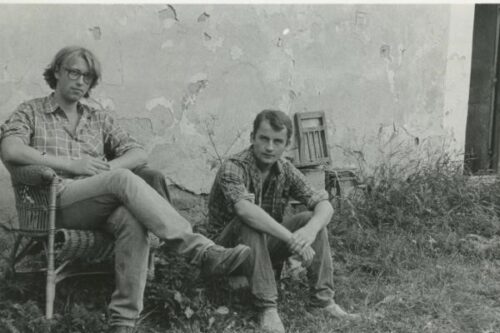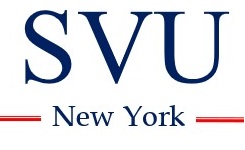A TALK BY DANIEL W. PRATT, PhD, McGill University
November 16, 2023
Bohemian National Hall in Manhattan

This talk discusses two prominent figures of the Czech 1980s generation, brothers Jáchym and Filip Topol. Filip was the lead singer of Psí vojáci (Dog Soldiers), a legendary band that played its first concert for Havel himself. Jáchym became a popular author of stories and unconventional novels. He was also an editor of Revolver Revue, an underground periodical. His apartment was the site for numerous dissident happenings. Although both brothers became dissidents, and both signed Charter 77, they rejected the notion of a pre-political self and projected an almost nihilistic stance against everything.
When scholars discuss the story of dissent in Czechoslovakia, the conversation usually hovers around the usual suspects: Václav Havel, Ivan Klíma, Jaroslav Seifert, The Plastics, Ivan Martin Jirous, and Egon Bondy. This group, along with the great filmmakers of the Czech New Wave, all born between roughly 1930 and 1950, still constitute the basis of most discussions of Czech culture under Socialism. To a certain degree, their innovations, cultural value, and international appeal justify their position. What has received a great deal less scholarly attention, however, is the generation that came next, that had never known the relative freedom of the “Prague Spring” and grew up in the fallout of Charter 77. That generation, as exemplified by the Brothers Topol, and also including Vít Kremli?ka, Petr Placák, Anna Wágnerová, Jirí Hášek (JH Krchovský), and others, worked with different values, trying to position themselves not only against the Communist government but also against the previous generation of dissent.
Daniel W. Pratt is Assistant Professor of Slavic Culture at McGill University. He works on Czech, Polish, Russian, Austrian, and Hungarian literature and culture, and his interests include narratology, dissent, nationality studies, aesthetics, and the intersection of literature and philosophy. His current book projects are Against Narrative: Non-narrative Constructions of Temporality in Central Europe and Bruno Jasie?ski, Internationalist, and he has written on Czechoslovak dissident punk rock, Gombrowicz’s interactions with Gilles Delleuze, and the meaning of history in Central Europe, amongst other topics. For the Fall semester of 2023, he is the István Deák Visiting Assistant Professor of East Central European Studies at Columbia University
